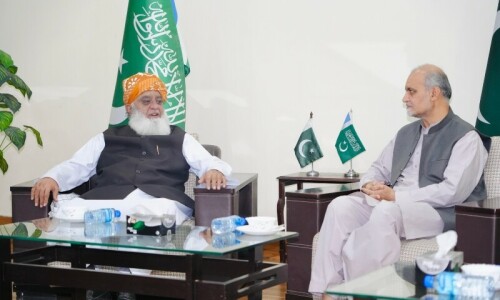The thought of killing refugees, attacking hospitals and exploding bombs in busy bazaars can occur only to those who have lost all touch with humanity. —AFP Photo
Taking on the army may be seen by some as a fair fight. But the thought of killing refugees, attacking hospitals and exploding bombs in busy bazaars can occur only to those who have lost all touch with humanity. Such tactics also betray the current desperation of the Taliban and their cohorts. They are still a fighting force but the myth of invincibility that once surrounded the militants has dissipated since the armed forces confronted them head-on in May 2009. Since September last year, the Lashkar-i-Islam in Khyber Agency has twice asked the government to strike a peace deal. Hitting soft targets and offers of negotiation are signs of weakness and on no account should the militants be accommodated in any way until they lay down arms.













































